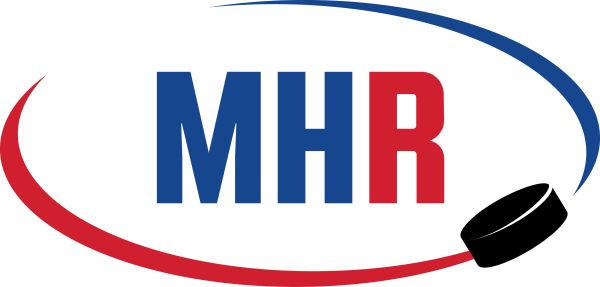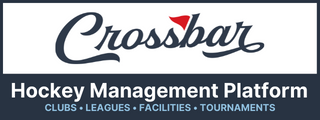MYHockey News
Kudos to USA Hockey for the Development Program
Let me say up front that I am not USA Hockey's biggest fan. I scratch my head at some decisions and have not had very good luck at all getting someone to talk to me intelligently about them when I have asked questions face to face or via email.
That said, I do think the Development Program(s) run by USA Hockey and its Districts deserves some praise. They are doing what most of us want from USA Hockey. USA Hockey gives kids (and parents) the opportunity to develop and to understand what it takes to be successful in the sport today.
First some notes. Not all districts run their Development Programs the same way. Some may be done better than others. I have some familiarity, both first hand and second hand, with how a number of them are done. Many people will always complain about the results of these tryouts, but be honest with yourself and ask how easy you think it really is to differentiate between all the players. They must draw a line somewhere and people will always disagree. As a matter of fact, I think they get it wrong about 20% of the time, but that doesn't make the activity any less valuable. Districts that have neutral third party judges (people who don't know any of the kids involved) earn the respect of the participants, even when they may have some questionable picks. The districts that use people who already know the kids in some capacity (current coaches, prep school coaches, parents, friends, etc) are often attacked for their bias, whether or not it really exists.
Why am I calling out the Development Program for kudos? I think the single biggest reason is it takes thousands of kids who all excel in their own local environments and gives them the opportunity to showcase their skills in front of a larger audience. Some of these players are classic "big fish in small pond". While they excel where they are at, they learn that other kids in the District have skills at another level. But you would be wrong if you assumed every "big fish in small pond" fit the mold. Some of these kids not only succeed on their teams and in their leagues, they succeed against kids they don't normally see during the regular season. The development program gives these kids and families a chance to see what else is out there. Playing at the highest level possible is not always the best option for every kid, but making informed decisions on where a child should play is important. These programs not only give the kids an opportunity to accurately assess their own abilities, it gives them a chance to build relationships with kids from other cities. In this day and age, kids have cell phones, email addresses, instant messaging accounts, home pages and all the other latest in technology. It is amazing what happens after these events.
Let me call out the Mid-Am District's summer camps. My son attended a couple hockey schools when younger and while the experience was always "fun", he rarely learned much from these "open to the general public" camps. The Mid-Am District does a spring tryout weekend with 150-200 kids per birth year. They then pick an average of 60 skaters to participate in a 5 day summer camp where they may select the Festival team (depending upon the age). They start the camp as early as age 11-12 (they combine the years that young). They stop having the camp at the Select 16 age when other events make it difficult to pull off successfully at the district level, but for five birth years they run 5 day summer camps. At age 14, my son now loves attending these tryouts and camps to catch up with his friends from around the district. They may have started out as strangers years ago, but now kids from all over the district who see each other only a few days a year, text message, email or chat with one another all season long. Additionally, the camps offer the kids an opportunity to hang with 60 or so other kids with the same love of the game who play at a similar level. I challenge the districts that don't yet open up these opportunities up to hundreds of kids and host week-long camps in the summer to strongly consider how to make it work in their district as well.
Thanks USA Hockey for putting together a quality Development Program.
That said, I do think the Development Program(s) run by USA Hockey and its Districts deserves some praise. They are doing what most of us want from USA Hockey. USA Hockey gives kids (and parents) the opportunity to develop and to understand what it takes to be successful in the sport today.
First some notes. Not all districts run their Development Programs the same way. Some may be done better than others. I have some familiarity, both first hand and second hand, with how a number of them are done. Many people will always complain about the results of these tryouts, but be honest with yourself and ask how easy you think it really is to differentiate between all the players. They must draw a line somewhere and people will always disagree. As a matter of fact, I think they get it wrong about 20% of the time, but that doesn't make the activity any less valuable. Districts that have neutral third party judges (people who don't know any of the kids involved) earn the respect of the participants, even when they may have some questionable picks. The districts that use people who already know the kids in some capacity (current coaches, prep school coaches, parents, friends, etc) are often attacked for their bias, whether or not it really exists.
Why am I calling out the Development Program for kudos? I think the single biggest reason is it takes thousands of kids who all excel in their own local environments and gives them the opportunity to showcase their skills in front of a larger audience. Some of these players are classic "big fish in small pond". While they excel where they are at, they learn that other kids in the District have skills at another level. But you would be wrong if you assumed every "big fish in small pond" fit the mold. Some of these kids not only succeed on their teams and in their leagues, they succeed against kids they don't normally see during the regular season. The development program gives these kids and families a chance to see what else is out there. Playing at the highest level possible is not always the best option for every kid, but making informed decisions on where a child should play is important. These programs not only give the kids an opportunity to accurately assess their own abilities, it gives them a chance to build relationships with kids from other cities. In this day and age, kids have cell phones, email addresses, instant messaging accounts, home pages and all the other latest in technology. It is amazing what happens after these events.
Let me call out the Mid-Am District's summer camps. My son attended a couple hockey schools when younger and while the experience was always "fun", he rarely learned much from these "open to the general public" camps. The Mid-Am District does a spring tryout weekend with 150-200 kids per birth year. They then pick an average of 60 skaters to participate in a 5 day summer camp where they may select the Festival team (depending upon the age). They start the camp as early as age 11-12 (they combine the years that young). They stop having the camp at the Select 16 age when other events make it difficult to pull off successfully at the district level, but for five birth years they run 5 day summer camps. At age 14, my son now loves attending these tryouts and camps to catch up with his friends from around the district. They may have started out as strangers years ago, but now kids from all over the district who see each other only a few days a year, text message, email or chat with one another all season long. Additionally, the camps offer the kids an opportunity to hang with 60 or so other kids with the same love of the game who play at a similar level. I challenge the districts that don't yet open up these opportunities up to hundreds of kids and host week-long camps in the summer to strongly consider how to make it work in their district as well.
Thanks USA Hockey for putting together a quality Development Program.

